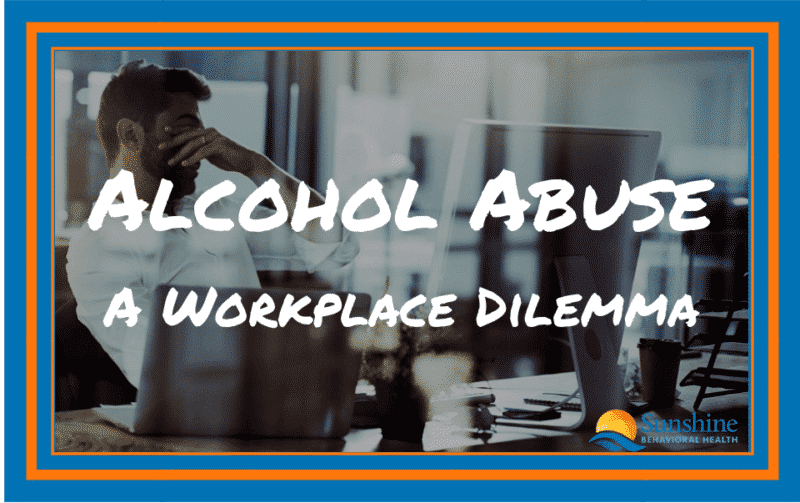
Alcohol use has been an acceptable form of socialization among co-workers. At least one party a year in the workplace is organized and held to foster camaraderie and fellowship among employees and their supervisors. These are often stressful events for the HR staff in the organization due to the presence of alcohol. This is due to the extreme issues that alcohol can cause in a workplace setting.
Problem Drinking
Excessive use of alcohol reduces our capacity to work. We all had experience with or had seen persons with a bad hangover from a previous night’s drinking. We all know the bad stigma that accompanies problem drinking. Excessive alcohol use may produce the following indicative consequences in the workplace:
-
Accidents that happen on and off the workplace
-
Deterioration of personal hygiene and grooming
-
General degradation in productivity and quality of work
-
Frequent absences and tardiness that cannot be explained satisfactorily
-
Irregular and freakish work patterns
-
Mood swings
-
Noticeable behavioral changes such as frequent fatigue, incoherent speech, or irregular gait
-
Theft
Risk of Developing Dependence
The foregoing symptoms affect the individual who abuses alcohol, but other consequences affect the workplace and the family of the person affected by alcohol abuse. Physical harm may come to those around the person abusing alcohol, either through accident or through violence. The whole team’s productivity is affected as other workers may have to do double work to pick up the slack from the alcohol abuser.
If the frequent use of alcohol does not get addressed, the individual may develop mental health issues. Physical and psychological dependence on alcohol may ensue, in which treatment and rehabilitation will be required.
What Employers Can Do
Employers have responsibilities for their workers’ well-being. The organization should have a written policy on alcohol use, or the employees may think alcohol abuse is being tolerated. Programs and activities for prevention should be in place and implemented uniformly. Similar programs to prevent alcohol-related risks are implemented in colleges, universities, and municipalities. This will send out signals on what is acceptable concerning alcohol use.
The company program should also have provisions and guidelines if the employee needs alcohol abuse treatment. Part of the program could be a health insurance plan for employees to cover alcohol detox and recovery.
What Colleagues Can Do
The atmosphere in the workplace is a climate produced by the chemistry between co-workers. Company identity assumes that colleagues work as a team and lend positive support to each other not only in the matter of technical requirements of each other’s jobs but also in the interpersonal relationship at the workplace.
Co-workers can easily spot signs of boredom, overwork, depression, stress, lack of drive and may be instrumental in identifying problems to prevent alcohol abuse. Co-workers can also provide insights on the company policies and programs to prevent alcohol abuse, maintain worker welfare, and make a positive work atmosphere. If the employer or the HR does not, the colleague can start the conversation and bring the problem to light.
Consider a Career in Substance Abuse Intervention
A number of universities and colleges offer programs for workers in substance abuse and addiction. There is a trend recognizing that early prevention services must be prioritized. The field is in the early stage of development and much work had to be done to standardize service quality and regulate the practice of this profession. The certification and accreditation system currently implemented for the substance abuse workforce is a good start.
Opportunities for work on substance abuse prevention and treatment abound in communities, municipalities, schools, and in health facilities. These sectors and all employers are encouraged to come up with written policies and comprehensive programs to reduce incidents of alcohol and drug abuse in the workplaces, the campuses, and other communities.
Recognize Your Condition
For employees who are already affected, consider that denial is an effect of alcohol abuse. Your co-workers and friends may be telling you otherwise out of concern and care. Listen also to your body. Consider the quality of your contributions to your team in the workplace.
In order to maintain employment with your current employer, you need to acknowledge your condition and develop the will and desire to regain your life. Submit to alcohol detox and treatment. There are various alcohol rehab treatment programs to choose from.
A Message From Our CEO
Medical disclaimer:
Sunshine Behavioral Health strives to help people who are facing substance abuse, addiction, mental health disorders, or a combination of these conditions. It does this by providing compassionate care and evidence-based content that addresses health, treatment, and recovery.
Licensed medical professionals review material we publish on our site. The material is not a substitute for qualified medical diagnoses, treatment, or advice. It should not be used to replace the suggestions of your personal physician or other health care professionals.





